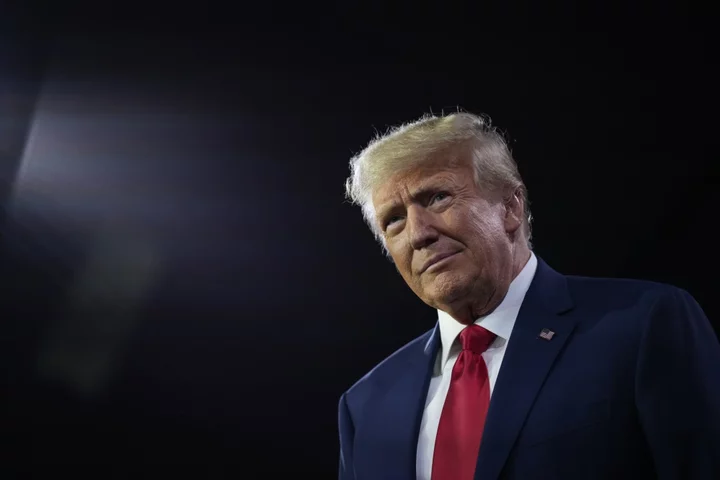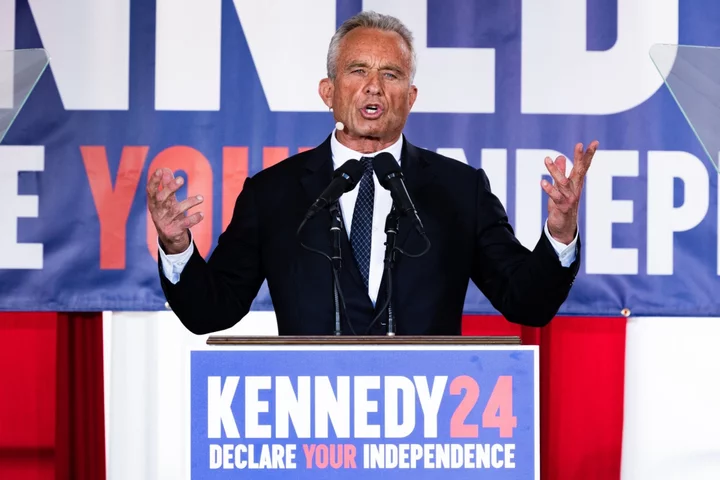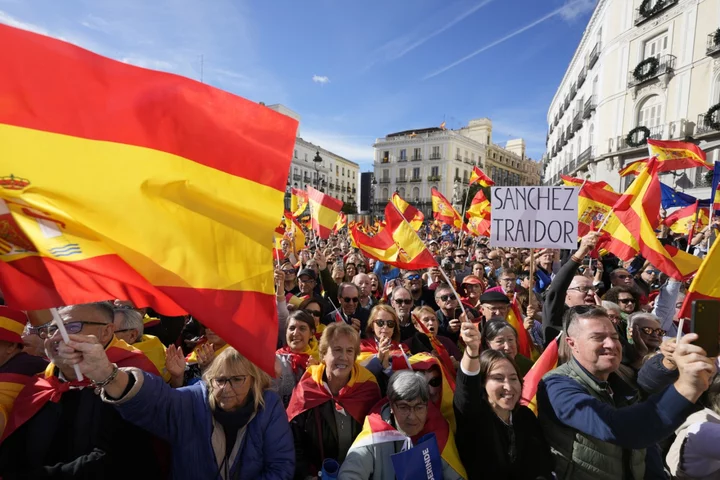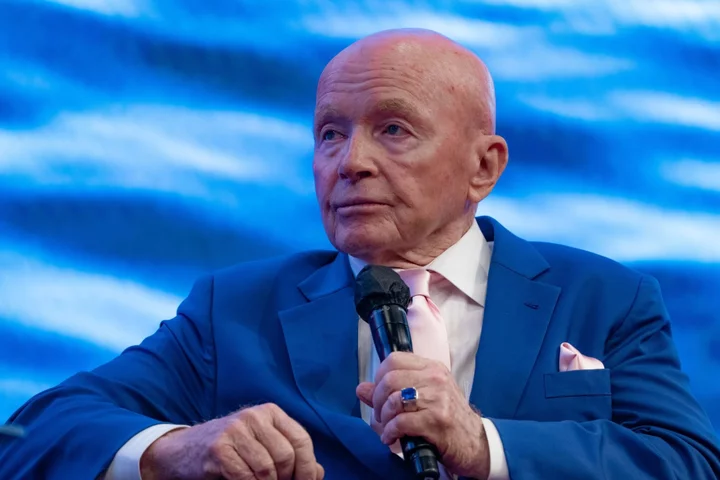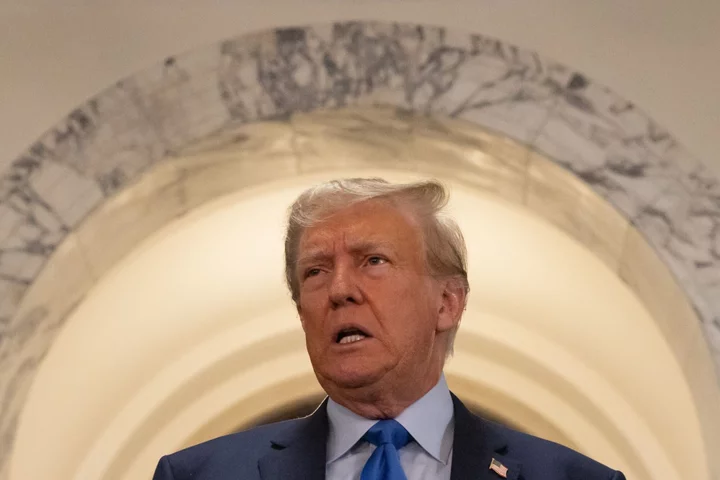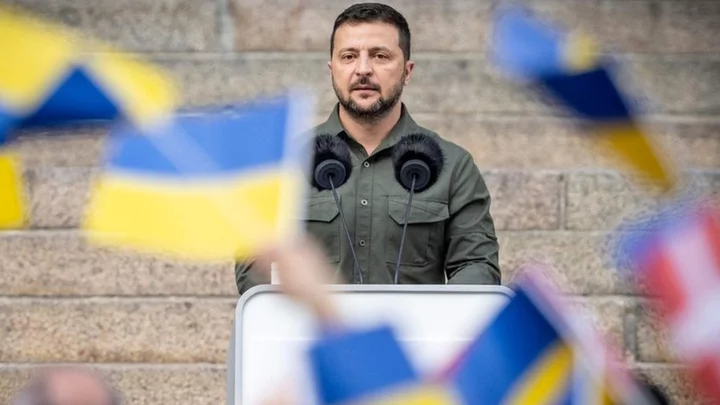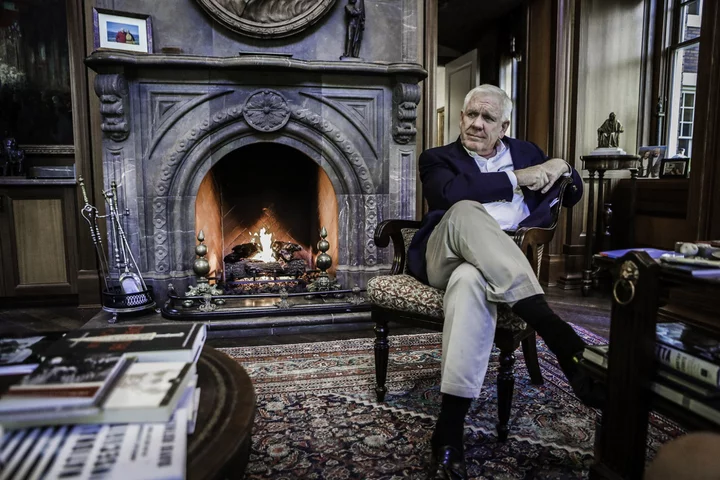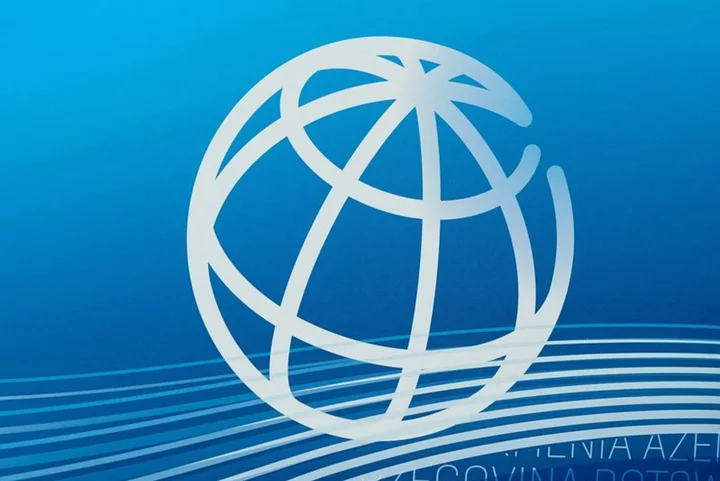A federal judge in Florida set a May 20, 2024, trial in the classified documents case against Donald Trump, rejecting the Justice Department’s bid to try the case in December as well as the former president’s request for a delay until after the 2024 election.
US District Judge Aileen Cannon on Friday set the date following a closely watched pre-trial hearing on July 18. While prosecutors won’t be able to try the case this year, Cannon’s move is a significant setback for Trump, who had asked her to set no trial date as he navigates various trials, pending criminal probes and his campaign.
The trial in Florida is one of several legal obligations piling up on Trump’s schedule going into the 2024 election cycle, including cases involving his business, allegations of defamation and hush money payments to an adult film star years ago. Trump is also the target of federal and state criminal probes related to efforts to overturn the results of the 2020 election.
Cannon began her order by rebuffing Trump’s request to delay setting a firm schedule, writing that she found it “necessary” to keep the rest of the case on track. She said that Trump’s arguments in favor of delay rooted in the demands of his 2024 campaign were “unnecessary” to her decision.
But she wrote that the government’s December proposal was “atypically accelerated and inconsistent with ensuring a fair trial,” given the amount of evidence that the defense had to review and complications related to the use of classified material. She deemed the case as “complex” over the government’s objection, a legal designation that gives her more flexibility to stretch out the timeline.
The trial will take place in the federal courthouse in Fort Pierce, where Cannon usually presides.
Read More: Trump’s Legal Cases Pile Up as Election Season Gets Busy
A spokesperson for Justice Department special counsel Jack Smith’s office declined to comment.
Trump’s campaign issued a statement Friday calling Cannon’s order “a major setback to the DOJ’s crusade to deny President Trump a fair legal process,” adding that it will allow Trump time to “continue fighting this empty hoax.”
The trial date falls after nearly all the 2024 primaries have been completed, but before an official Republican presidential nominee is named at the convention in July. If Trump won enough of those primaries, he could be the presumptive Republicans presidential nominee when his trial begins.
Smith’s office and the defense teams for Trump and his co-defendant Waltine “Walt” Nauta had all agreed that Cannon’s original plan to hold the trial in August was far too fast. But they sparred over what the judge should order instead.
Cannon’s comments and questions during the hearing earlier this week had hinted at her interested in a spring or early summer timeline. She had asked one of Trump’s lawyers how “firm” a March 25 trial date was in a state criminal case in New York against Trump involving alleged hush-money payments to an adult film actor.
The former president could be on trial in New York for at least eight weeks before going to trial on the federal case. Manhattan state prosecutors haven’t said how long that trial will take but a criminal trial of Trump’s companies lasted at least seven weeks.
Related: Trump Is a Target in Federal Election Probe (Podcast)
Prosecutors argued that starting the documents trial on Dec. 11 would give the parties enough time to resolve issues related to the use of sensitive national security information and pre-trial challenges from Trump and Nauta. They maintained that the basic theory of the case was straightforward: Trump unlawfully held onto classified materials after leaving office and then he and Nauta conspired to obstruct the government’s efforts to get that material back.
Trump’s lawyers argued that the government’s timeline was unrealistic. During the July 18 hearing before Cannon, they said a December trial failed to account not only for the numerous possible legal challenges they might pursue, but also the realities of Trump’s status as the frontrunner for the Republican presidential nomination and his crowded litigation schedule.
Trump attorneys asked Cannon to postpone setting any trial date, and to likely wait to set deadlines for any defense motions until December. They confirmed to the judge that they didn’t believe a fair trial could take place until after the 2024 election, given the amount of publicity and intense political divisions involved.
Cannon signaled her skepticism of Trump’s political case for delaying the trial, urging the lawyers to focus their arguments on the volume of evidence and the time they would need to review it, the complexity of issues related to the classified data involved and the extent of any pretrial motions they wanted to pursue.
But she also questioned the government’s insistence that all sides could be ready for trial by the end of the year, asking prosecutors for any examples of past cases involving classified information that unfolded on such a “compressed” schedule.
Smith’s team told the judge they’d already turned over most of the unclassified evidence in the case — more than 1.1 million pages of documents and, according to Trump’s lawyers, more than 1,000 days worth of surveillance footage. Jay Bratt, a lead prosecutor, said that only a smaller subset of that evidence was directly relevant to the government’s case against Trump and Nauta. Defense lawyers countered that they had a duty to review all of it.
The government had tried to swiftly secure the judge’s approval of an order laying out terms for safeguarding classified material so they could start turning that over as well, but Cannon chastised them for filing a proposal without giving the defense more than a weekend to try to reach an agreement. She directed prosecutors to make another attempt at meeting with Trump and Nauta’s lawyers before coming back to her with a proposed order to consider.
--With assistance from Patricia Hurtado.
(Updates with Trump campaign statement in eighth paragraph.)

